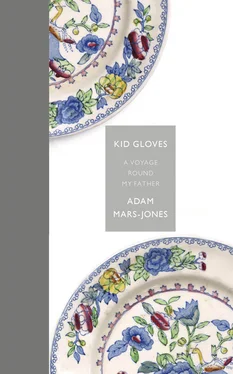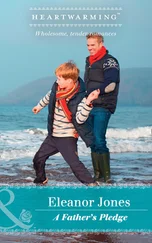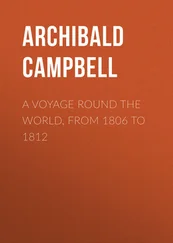While he was well enough he worked at a little salon called Ficarazzi on High Holborn, and later at the branch of the Hebe chain on the Strand. Both premises were in easy walking distance of Gray’s Inn, and I would often bring him lunch there. It was only when I read him a story based on a weekend we had spent in Brighton that he realized I was embarrassed by my lover being a hairdresser. Was he disappointed in me? I don’t see how he could have been anything else.
He was very much at ease with himself. His small vocabulary of adjectives — ‘stunning’ his favourite positive, ‘tragic’ its negative counterpart — was up to the task of conveying his subtle responses. If there was an element of cliché in his character he would embrace it, or find a way of setting it off. Liking Simple Minds, Talk Talk and U2 might not be the most maverick choices available, but who was he to resist the classics?
He bought The Joshua Tree when it came out and played it constantly on the Ficarazzi sound system. He did his best haircuts ever that week. Coincidence? You decide.
When I took to riding a motorbike (certainly to my own surprise and perhaps to other people’s), he said that personally he preferred mopeds, and planned to choose a purple one for himself, one whose motor resembled a hairdryer as closely as possible. He loved it when people didn’t notice his jokes, and never made my mistake of repeating them as often as it took for them to be acknowledged, if not necessarily enjoyed.
For a while he lived on New North Road in nether Islington, and then, after a hospital stay, in Acton, where his non-rent-charging landlord was a volunteer he had met while he was there, an altruistic set-up with its own set of complications. The only place we could be properly private was a flat in Surrey Quays that he was lent towards the end of 1987, where the price of privacy was cold and damp. Michael had never seen snow falling until he came to London the previous year, and had loved it, but didn’t enjoy cold in its less ornamental aspects.
Of course, living in Gray’s Inn meant I couldn’t offer Michael any sort of home. He wasn’t exactly welcome as a visitor while Dad was on the premises, but that was perfectly consistent. Welcome was not something he claimed to offer when it came to that side of my life. Mum’s stiffness in his presence was more of a surprise to me. I had expected her to see right away that Michael, without being a needy personality in the slightest, was a person in need, and that was a category to which she had always responded.
I reasoned that she was so easily intimidated herself she didn’t realize that her manner could be off-putting in its own right. Surely she could see that Michael didn’t even know what to call her? Using her first name without invitation was taking a liberty, but being expected to say ‘Lady Mars-Jones’ was a joke. She herself disliked having a grand title, one that only meant she was married to a man who had a certain job, but if she didn’t see how alienating it was to someone without status and from another part of the world then she might as well have been glorying in it.
It can’t have been like that, from her side of things. I was busy sending out on all frequencies the message that it was quite impossible for me to acquire HIV, jamming the family’s listening apparatus with a blanketing reassurance, while also expecting my mind to be read and my intentions clear. And from Sheila’s point of view, I imagine, Michael’s sweet droll presence was just the mask a virus wore when it entered her house with intent to bereave. He personified death, and not just a general death — his own, of course, but mine too.
Naturally she fought against being on first-name terms with that. As a debilitated young man far from home, with nothing to rely on except the small surprises he could spring with his scissors (for as long as he was still well enough to ply them) he also represented absolute vulnerability. Perhaps she was sending out some jamming signals of her own, to prevent unbearable possibilities from tracking her down.
Eventually I said, ‘Do you mind asking Michael to call you “Sheila”? “Lady Mars-Jones” is a bit of a mouthful.’ And she said, ‘Of course. Silly of me not to think of it.’
Even ‘Sheila’ he found a bit of a mouthful, perhaps because of its antipodean usage (even if Australian rather than New Zealand) to mean woman generically. In conversation with me he styled her ‘Shee’, this being what Bobby Grant on Brookside , as played by Ricky Tomlinson, called his wife, Sheila (Sue Johnston). Michael preferred grim British soap operas to sunny Australian ones, and EastEnders made Neighbours look pretty silly. Brookside was sometimes so wonderfully gloomy that it made his problems seem quite minor.
He was in the UK on a two-year visa. Unlike (as it seemed) all his friends Michael didn’t have ‘patriality’, the right of residence that Kiwis enjoy as long as they have had the forethought to equip themselves with at least one British grandparent. It wasn’t legal for him to make his home here, and of course there was no mechanism, no civil partnership nor extended Foucauldian form of adoption, that would let me top him up conveniently with the rights he lacked.
The only form in which I could show commitment was to buy a flat for us to live in, for however short a time. HIV was doing what no other agency had achieved, by making me set up on my own. The timing wasn’t great — the summer of 1988 was the last time that two earners could claim tax relief on a single mortgage, so yuppy couples on a deadline were blocking the doors of estate agents’ premises. My insecure freelance income was outclassed, required to compete against mature salaries hunting in pairs.
Brought up in WC1, and in an august enclave to boot, I wasn’t particularly realistic about where I could afford to live. An early Terrence Higgins Trust meeting had been held in a basement on Highbury Fields, and I was duly impressed with the amenities of the area. I could afford a three-bedroomed flat in Finsbury Park or a two-bedroomed one in Highbury. Journeys from Highbury were shorter, to the West End to see films, to Gray’s Inn by number 19 bus, and it was hard to make out that I needed a third bedroom when soon enough I would be living alone.
It was August when we moved in. ‘Shee’ gave us a cast-iron cooking-pot, still in service in the second decade of the twenty-first century, and Michael’s mother, Beverley (who had visited that summer), gave us a chopping-board made of a distinctive New Zealand hardwood. It cracked and then split a good long time ago, losing the inset metal handle, but I’ll go on using it as long as there’s enough square-inch-age left intact to accommodate a spring onion.
Michael had his own bedroom, and mainly slept on the futon there. He put pin-ups on the wall with Blu-tack, large-format photos from the gay free-sheets, innocuous furry nudes. I must have looked dismayed at this revelation of preference, for him to spell out so clearly the obvious truth: if he had wanted a lover covered in coconut matting he would have found one. There were applicants.
He spent a lot of time knitting at a modest level of craft, making what he called ‘peggy squares’, alternately black and brightly coloured, to be sewn together into a patchwork quilt. He explained that knitting was only half an activity, and so was watching television, but between them they made up a state of satisfaction. He would sit on the sofa knitting with his long right leg crossed over, bobbing his bed-socked size twelve foot in slow tempo, keeping time with something I couldn’t hear.
We weren’t entirely swallowed up by domesticity. Through Edmund White, with whom I’d written a book of HIV-related stories, I was put in touch with Kitty Mrosovsky who lived near us, in Arsenal near the stadium (before it moved away). She had recently been diagnosed as positive, and needed someone to talk to. Michael came along to meet her once, and was touchingly protective of her, considering an age gap of perhaps fifteen years and a great difference of character — Kitty was academic and temperamentally nervous, a pianist and writer whose first novel had been published by a firm that had instantly gone bust, so that her career as a fiction writer was launched and sunk almost simultaneously. On the way home Michael said that he thought the stage Kitty was going through, when you know your health is being secretly ruined but nothing definite has yet happened, was the hardest of the lot to deal with. In HIV terms, he felt like her older brother.
Читать дальше












